

CONNOR BRAZIER: The White Pube’s show at HUTT, The 🌱 of Pablo, was in part influenced by Pablo Larios’ essay Network Fatigue. The tagline for the essay ‘How artists are reclaiming the local and personal and resisting image circulation though ephemerality and image circulation’, does a pretty good job at summing it up, but could you explain how this piece of writing, in particular ephemerality related to your approach to the show?
THE WHITE PUBE: I guess we were just really taken by the idea of working with ur mates and people you trust;; but in his essay, Larios talks about this network fatigue~~ as a cool trendy berlin kinda thing, very #radical n tbh whitewashed. But what he described was a tactic or mode of operating i was already familiar with bc artists of colour have tbh been doing it for time; good-nepotism, when someone’s got their shoe in the door they pull everyone they can up with them. It is nice, good and affirming to work with ur mates, w people you trust. When thinking through the show, I thought about Kanye West and his performance at the 2016 Brits where he had fucking everyone on stage w him and the flamethrowers. And from that performance, Skepta used a clip from some woman phoning into like ofcom to complain about it on one of his tracks, Stormzy referenced the performance (saying he’s not j a back up dancer) in one of his songs. It was network Fatigue, in the way I knew, not the whitewashed n kind of elite removal that Larios described. The show was us like…. Thinking through what that term looked like to us, what it meant in practice. We exercised network fatigue, Gab made work with her family, with the ephemera of her life. I filmed my mum reading the essay, and chatting about what she thought it meant. It felt settled at the time, like the peak of what a TWP show would look like between the two of us.
CB: You have both worked on projects with different spaces, galleries and obviously extensively online, where you have operated in a few different roles as writers, critics, artists and curators. What do you perceive the responsibilities of a host organisation to be in the support of an artist they are working with?
TWP: 1) Know about the person you are inviting, do your research on the work they have produced + their thoughts and feelings and politics.
2) Good admin can make the whole thing easier. Make a full invitation from the get-go, don’t expect the invitee to finish the planning for you. Pay well and on time. Book people’s trains for them so they aren’t paying out of their own pocket and then waiting for reimbursement. Make sure they know what to expect from the place they are working in, and the day of work itself. I love an itinerary. Also if it’s possible, make sure you set aside time for rest so nothing is ever too full-on (people have all sorts of health things that mean they might not be able to fire on all cylinders all day long for you. It’s good to take breaks and eat. Shared meals are good I think, for this but also for a sense of community).
3) Offer artists critical support. I think this doesn’t really happen, even from curators working with artists. I think good curation involves criticism, and artists don’t often have access to creative + critical development once they are outside of an educational institution. Good to have it on the table.
4) Listen to the artist’s criticisms of the institution they have been invited to - they should ask for feedback, consider it, see what they can do to implement change.
5) If things go wrong, you might need to also be there as emotional support for the artist. Are you prepared to do that?
CB: I remember a conversation I had with an artist who talked about ‘managing your expectations’ when working with artist-led organisations and how this differed from working with better funded, larger institutions. Do you feel that there should be certain working practices that should be applied to arts organisations across the board and currently affect both artist-led spaces and also institutions?
TWP: Yes, definitely, and I know 12ø are about to work on formulating these policies (events soon to come at OUTPUT in Liverpool, Transmission in Glasgow, and Auto Italia in London) so keep an eye out! I think so much falls through the cracks, ACE don’t evaluate things properly, people don’t self-evaluate well enough, and people get away with eye out! I think so much falls through the cracks, ACE don’t evaluate things properly, people don’t self-evaluate well enough, and people get away with murder and also bad art.
CB: One obvious issue is #GettingArtistsPaid, but when a fee or financial assistance isn’t an available form of support an organisation can offer, what other modes of care, support or exchange do you feel should be available?
TWP: A crit, help/how-to on writing a funding application, recommendation for other jobs, typical time-share roles like a lift somewhere or literal manual labour. Idk. Kerri Jefferis and Sophie Chapman have written something good about this but I can’t find it.
CB: For me, The White Pube is about care, criticism and quality in the arts. Your website hosts a monthly residency as well as being the place to go for your reviews and writing. How do you run this programme?
TWP: We started the residency three mon - ths after The White Pube began, and just ran between an ongoing open call and a few invi - tations we made to certain artists we thought might enjoy doing one. As TWP grew up and we graduated n started to think more about money and art as labour that should be bought, not taken, we spoke about ending the residency because we had no funding. We were quite torn bc we didn’t want to apply for ACE funding, preferring to stay outside of the typical money streams and institutional relationships, but we wanted to pay the artists who were taking on residencies - and many of whom were putting a lot of work into it. In terms of funding, ACE is really the only one that makes sense for this (because it could be a smaller project within a full programme we’d apply to cover) and yet we still don’t want ACE funding. So, we wavered for a while and still artists were applying and saying they wanted to do it anyway in spite of not being paid; and eventually we decided the way we want to be paid for our work on TWP is through Patreon, because it is independent, direct, and feels like genuine audience support. Our dream is that the Patreon will be able to cover our writing + admin time (each, as in, split), but also provide a monthly fee for the residency artist. It is just still not there. And we’re thinking all the time of possible alternatives, like commercial sponsorship from something not art related so it wouldn’t interfere too much with our critical opinion. The residency feels like something we can’t not do, but also is just politically against us, and at the same time relevant to the Money Feelings text I wrote about how sometimes friends have to help friends at the beginning of their career so they have something to put on their CV to even be able to apply for funding, to be a credible artist. Swings n roundabouts.
CB: When working with a digitally based organisation or one without a set space of their own, what modes of care, support and/or exchange do you feel should be available?
TWP: O godddd, this is close to home. Bc we run the web residency, right? So i guess allowances need to be made for the ephemerality of it. You want a person to get something out of it, so pls pay them if poss (in sayin that i also must acknowledge that our residency is not paid, and we have no idea how to fund it adequately. Pls help if u have any idea how). We try and make sure the ppl on our home - page get something out of it, so they either are able to execute an artwork they always wanted to make, but perhaps didn’t have the space to (so Son September recently published a new mixtape every other day as like a literal focus challenge to test her production and output n stretch herself). Or we try n make sure we r helping an artist finish the boring admin bits, so January’s resident, Dostum January had a film he wanted to show; so we j sorted the webpage out for him. In terms of actual work, i try n make sure I’m doing all the boring repetitive useless bits like the gruntwork, and the artist is doing all the good stuff (bc honestly what is the point in them doing boring fiddling w SEO etc etc, esp when unpaid). We also make a point of it all being on the home - page atm - that gets the most views so IF ur sayin to someone ”we can’t pay u, but you’ll get loads of exposure” we rly try n milk that exposure for them. so we flag up the residency, put it on IG, Stories, twitter, talk about the resident in lectures,,, make sure ppl are aware of what they’re up to. Once ur month’s over also u get a we’ll pass things over to u when we hear of them, we curate ur work in screenings/ shows we’re up to (few n far between atm) we offer support w things if needed (crits n tbh critical opinions when needed). i think care maybe in that sense is j about making sure someone walks away from the interaction feelin like they’ve got something out of it. N i think maybe recognising that as an outcome n making sure it’s met is all that u rly need to worry about in terms of making things available. Like j ask the person “helo, what would u like to get out of this, how can i help, what care package would u like me to deliver?” bc if it’s ‘can u put it up on the site for me?’, sure thing. If it’s ‘It’ll be starting 5 days late bc i’m not ready’, no worries. J make allowances for where u lack, and offer kindness in any form u can imo.
CB: I recently saw a tweet from TWP which made reference to some of the structural issues with the art world, including the exclusivity, emotional pressure and precarity that affects many. Morgan Quaintance’s eflux article, New Conservatism: Complicity and the UK Art World’s Performance of Progression, brought up these structural issues and for me placed them in a wider context politically. Do you think that a restructuring of the art world is possible, and if so, what would constitute an ethically sound and responsible economy of care?
TWP: Yes, I think it’s possible. I feel like people love ‘models’ and new ‘ways of working’ and it could honestly just took 1x artist-led space and 1x major institution to set the example for a better art world, and watch it spread. I think I have to believe this though. As I explained in the thread, I just cannot see how it’s viable for any of us to stay here in the creative industries and work with them as they are. They’re damaging everything and nothing creative is even being done, not worth it on both counts. As for the solution, I think I need to get through the first funded phase of programming at OUTPUT (hi it’s gab typing) and then start to think about policy and such once I’ve properly-officially worked in a curator position for a good amt of time. I want to write a part 2 to Morgan’s text. And just hopefully fix everything lol.
CONVERSATION
Oct 2018
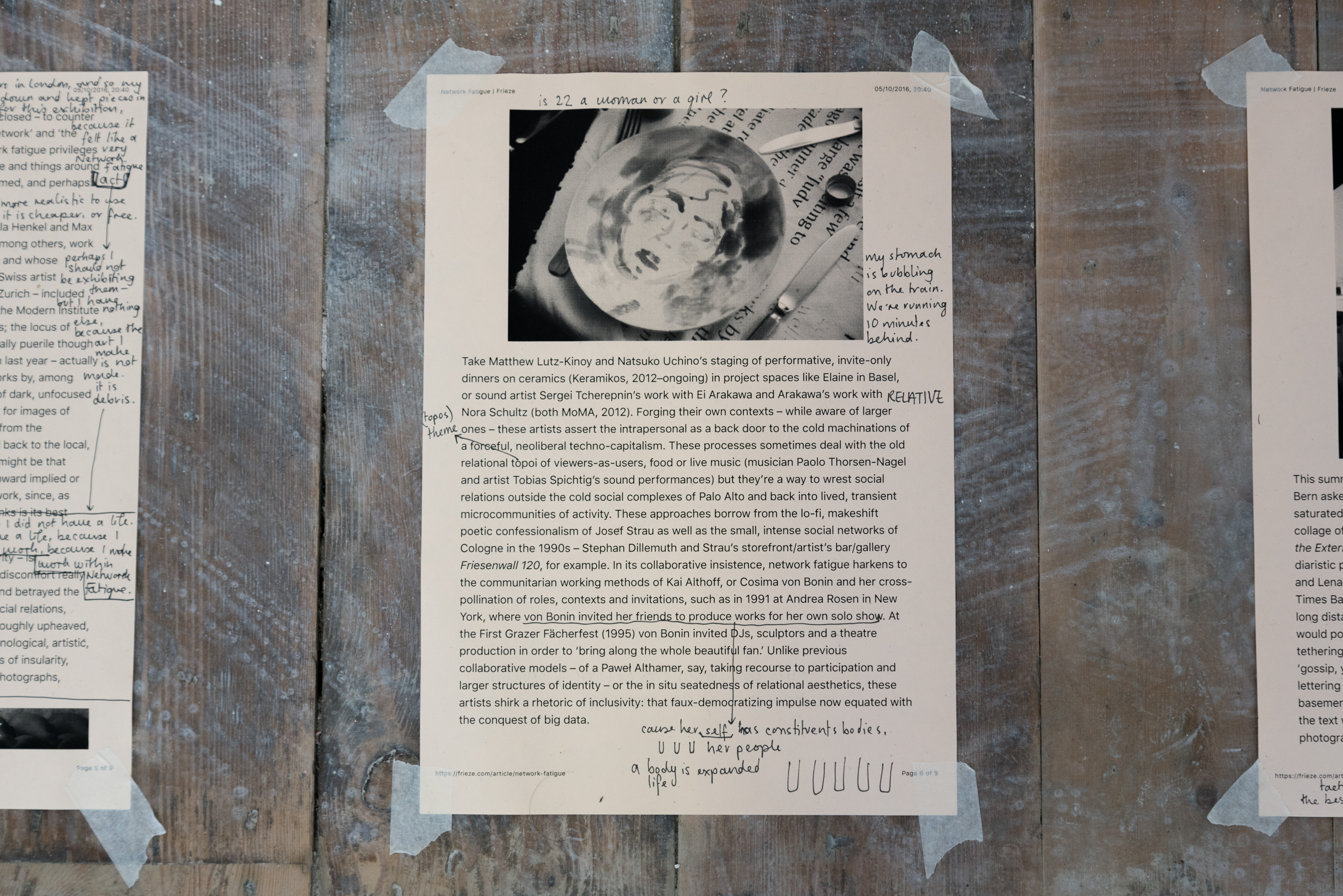
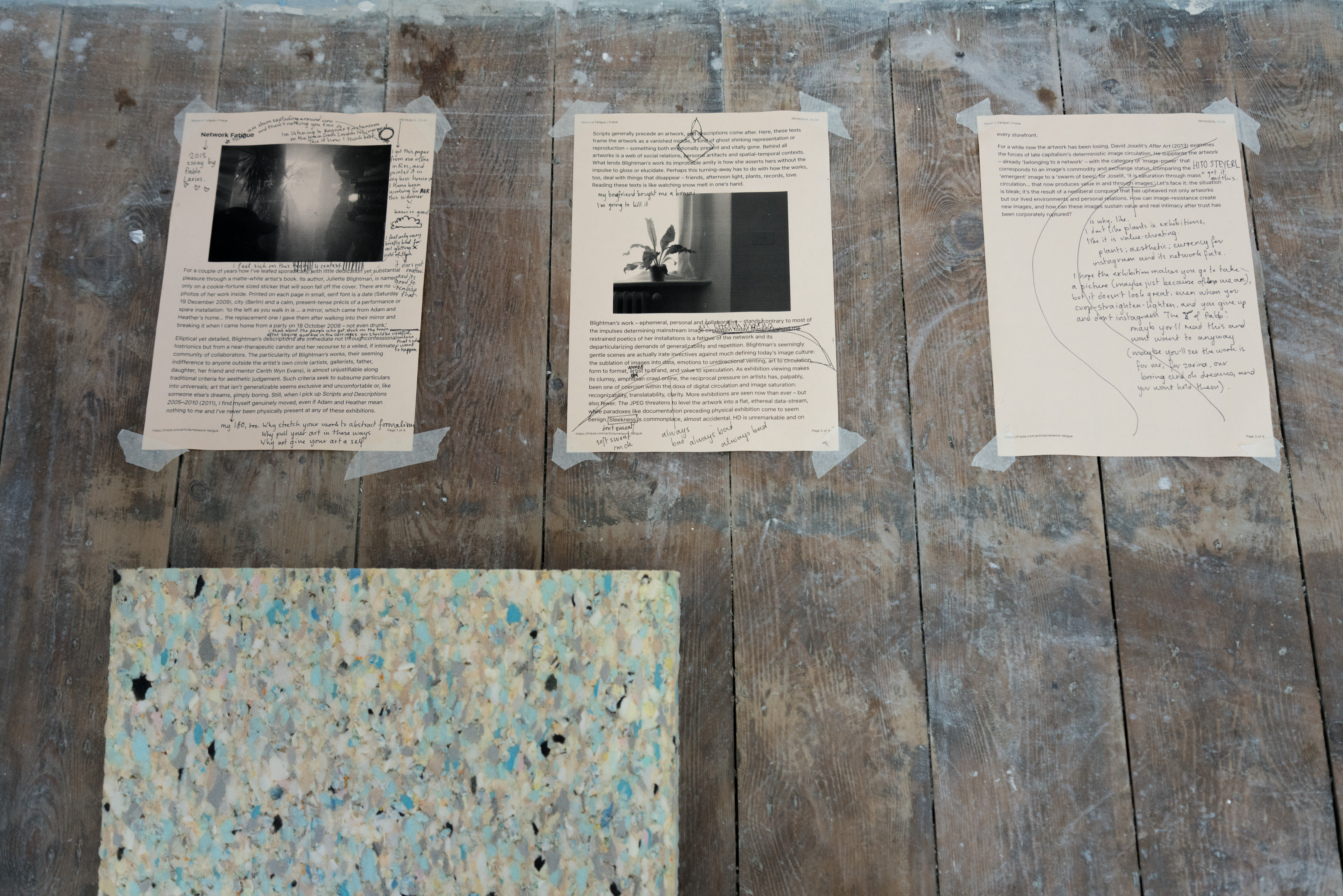
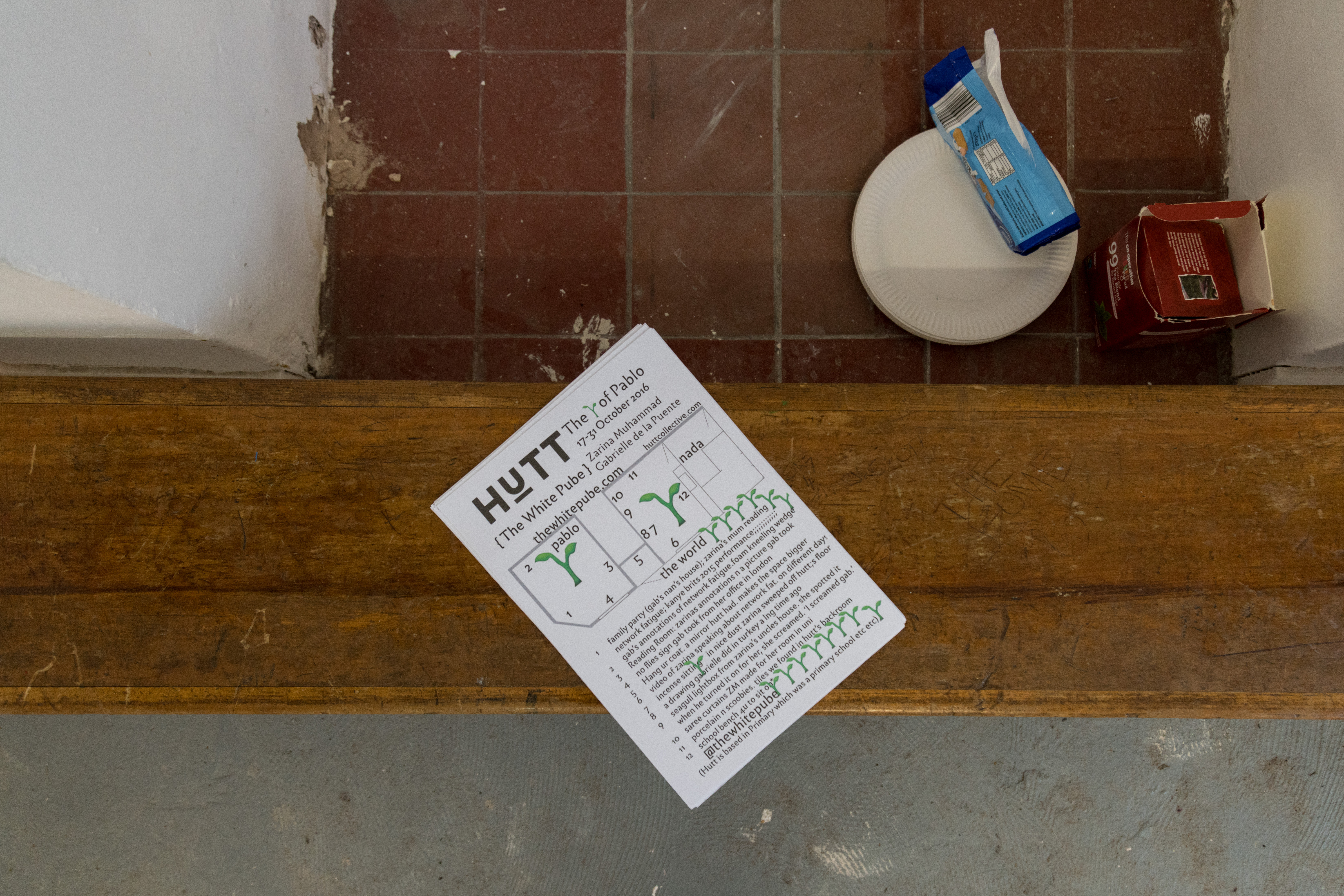
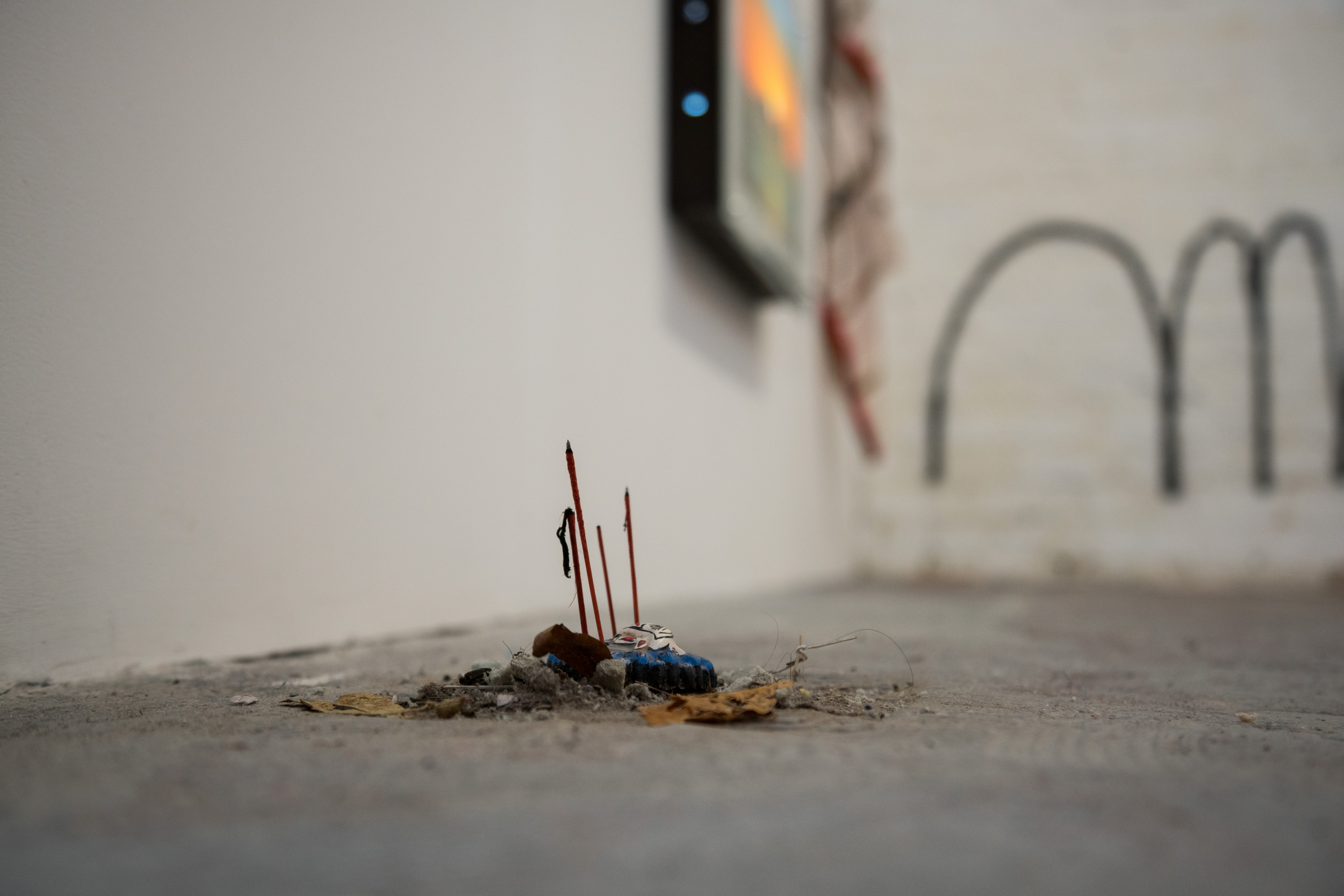
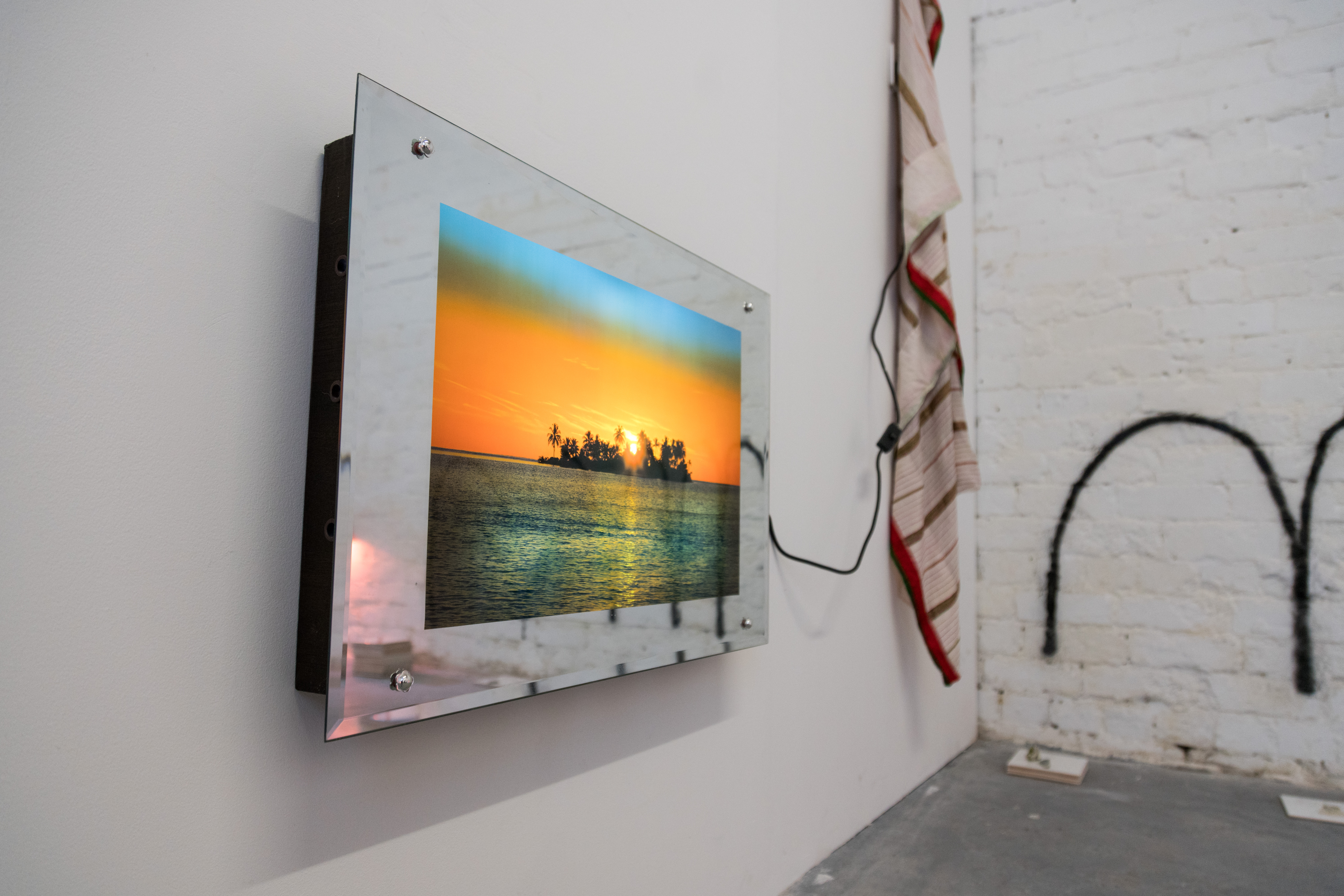
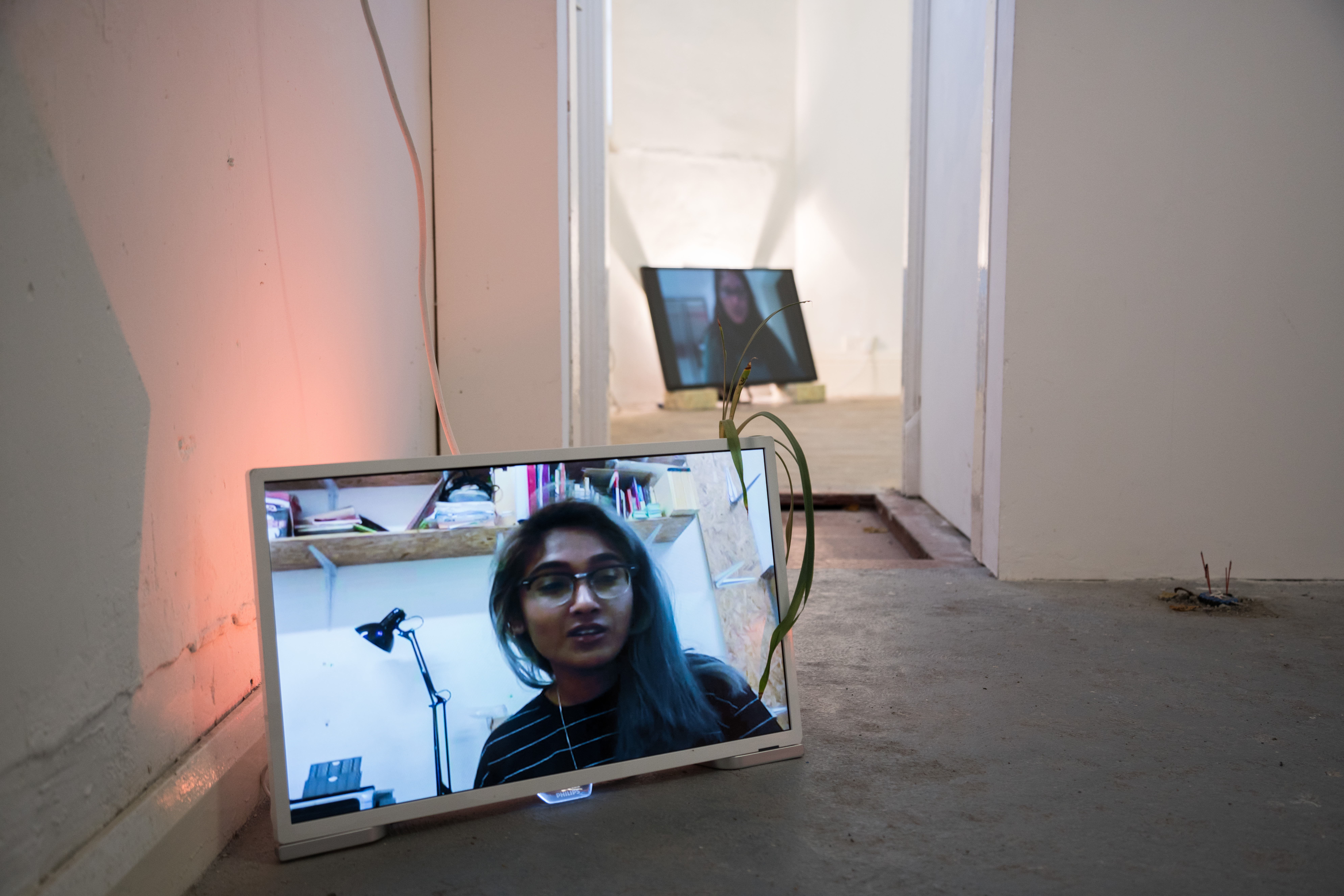
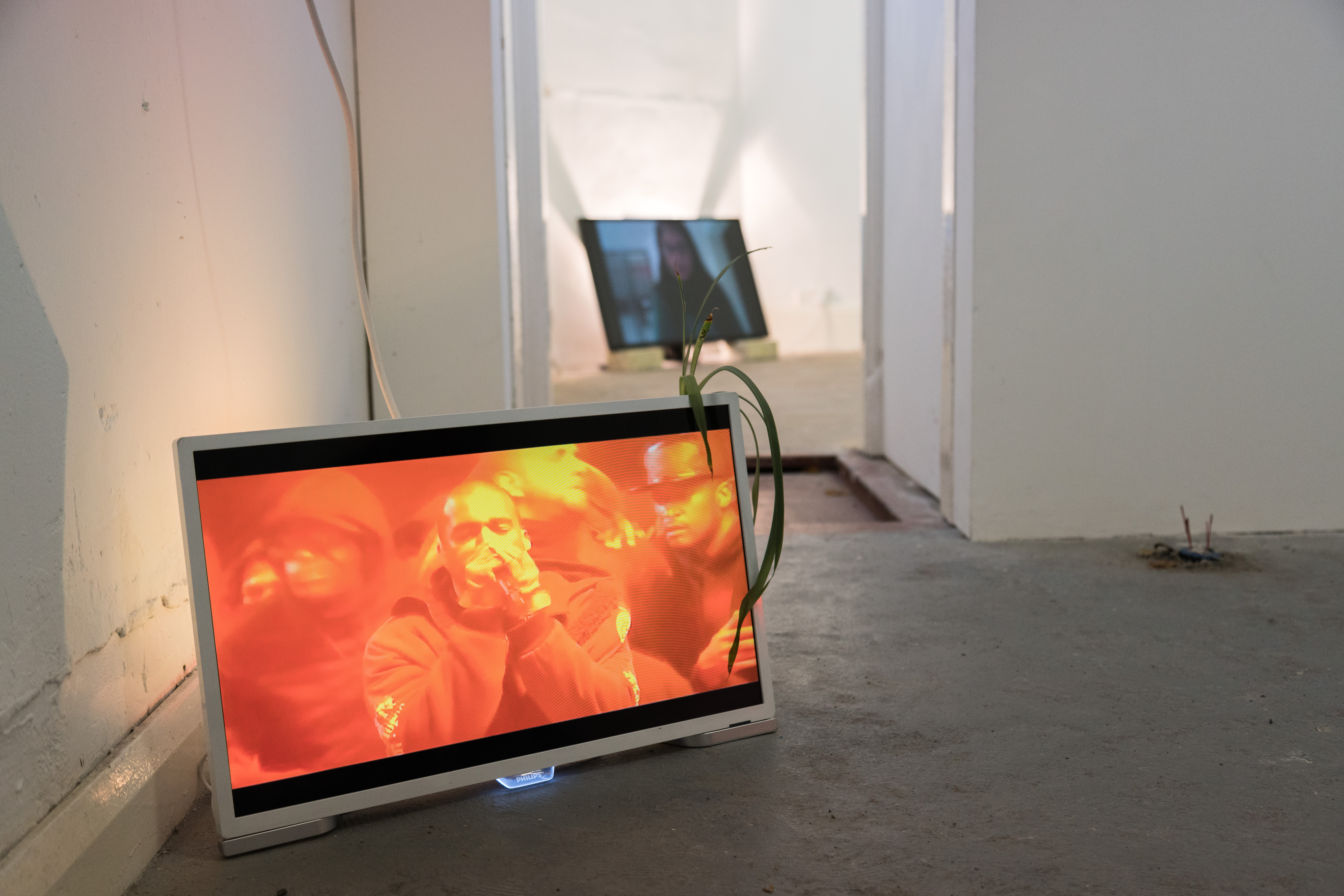
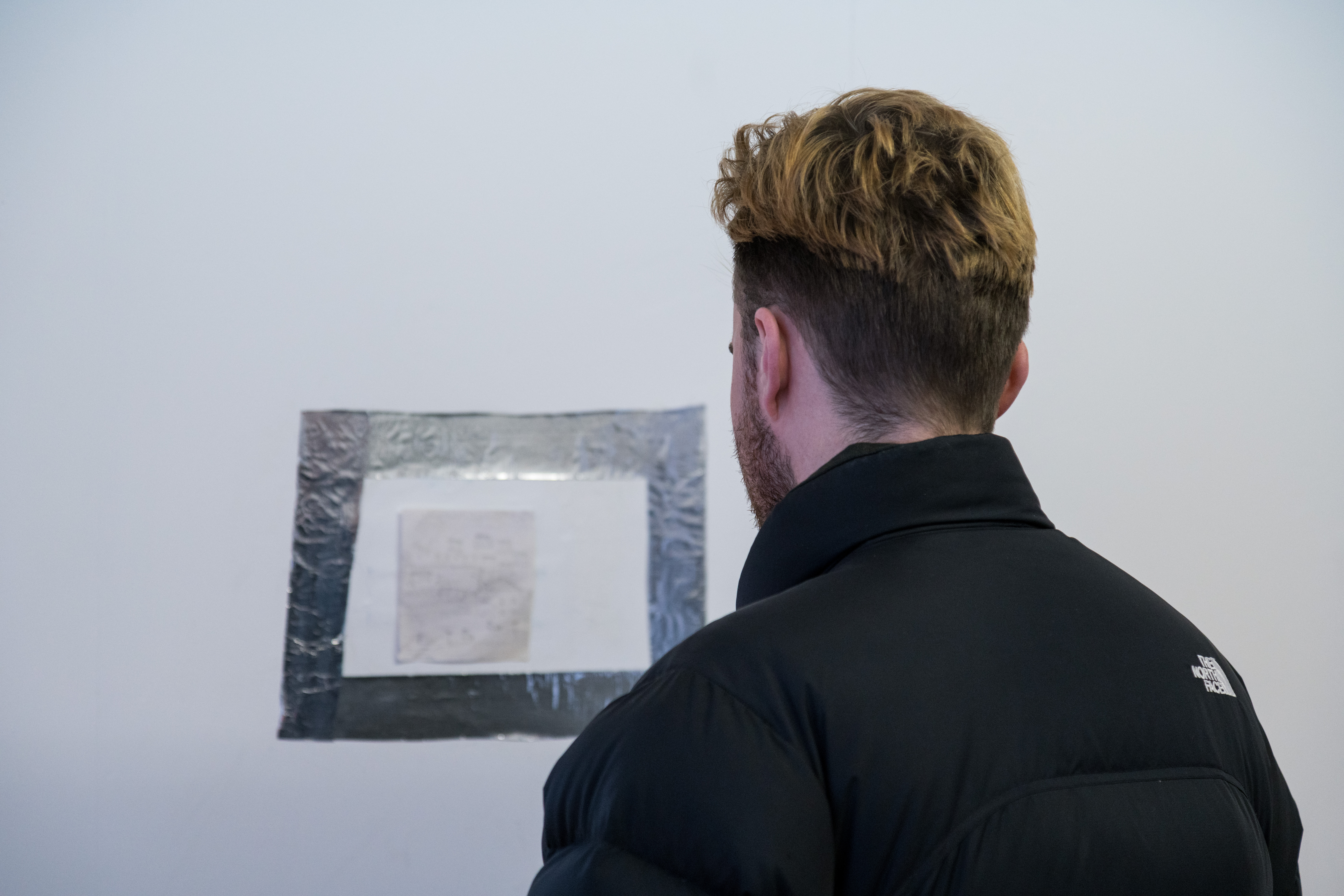
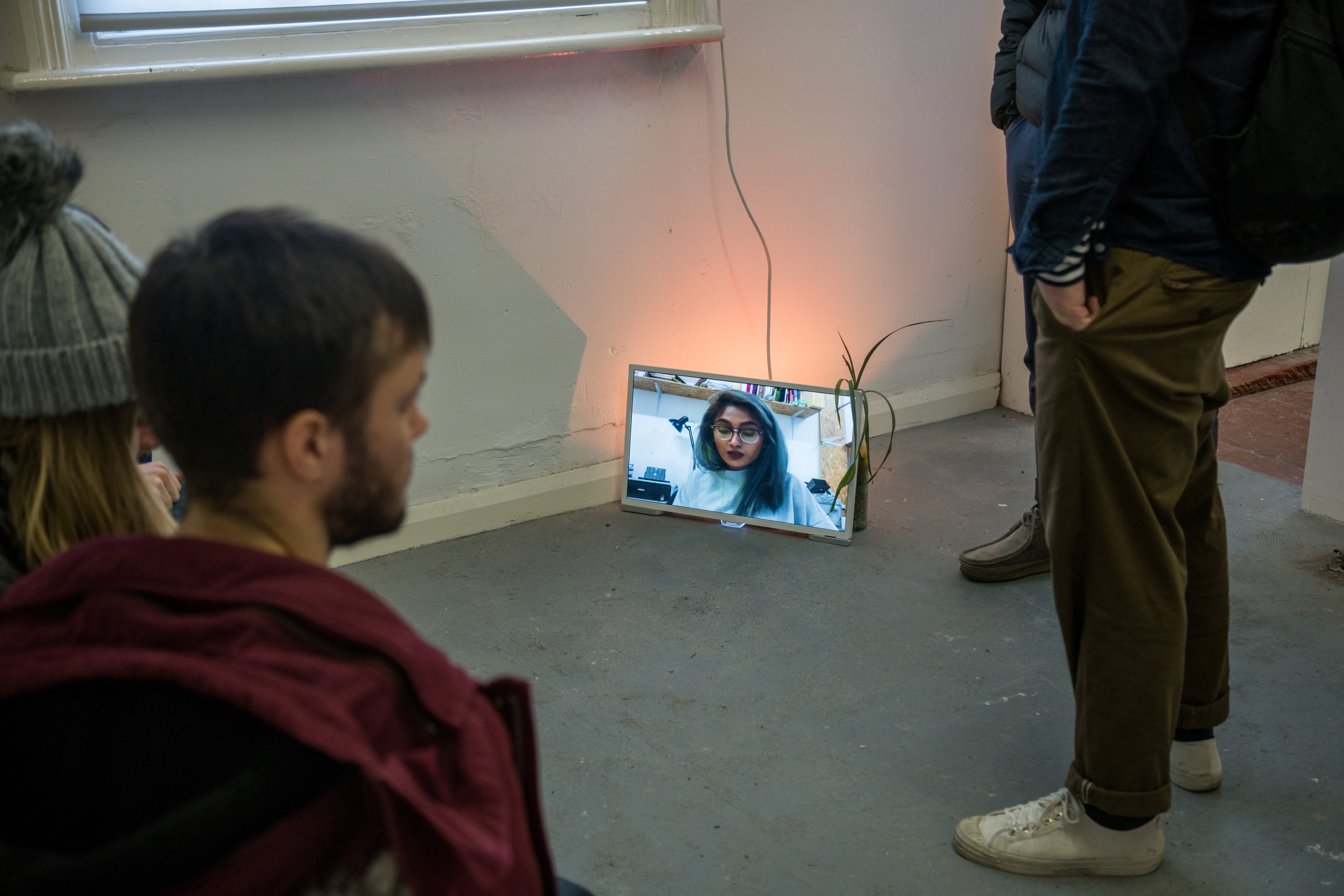
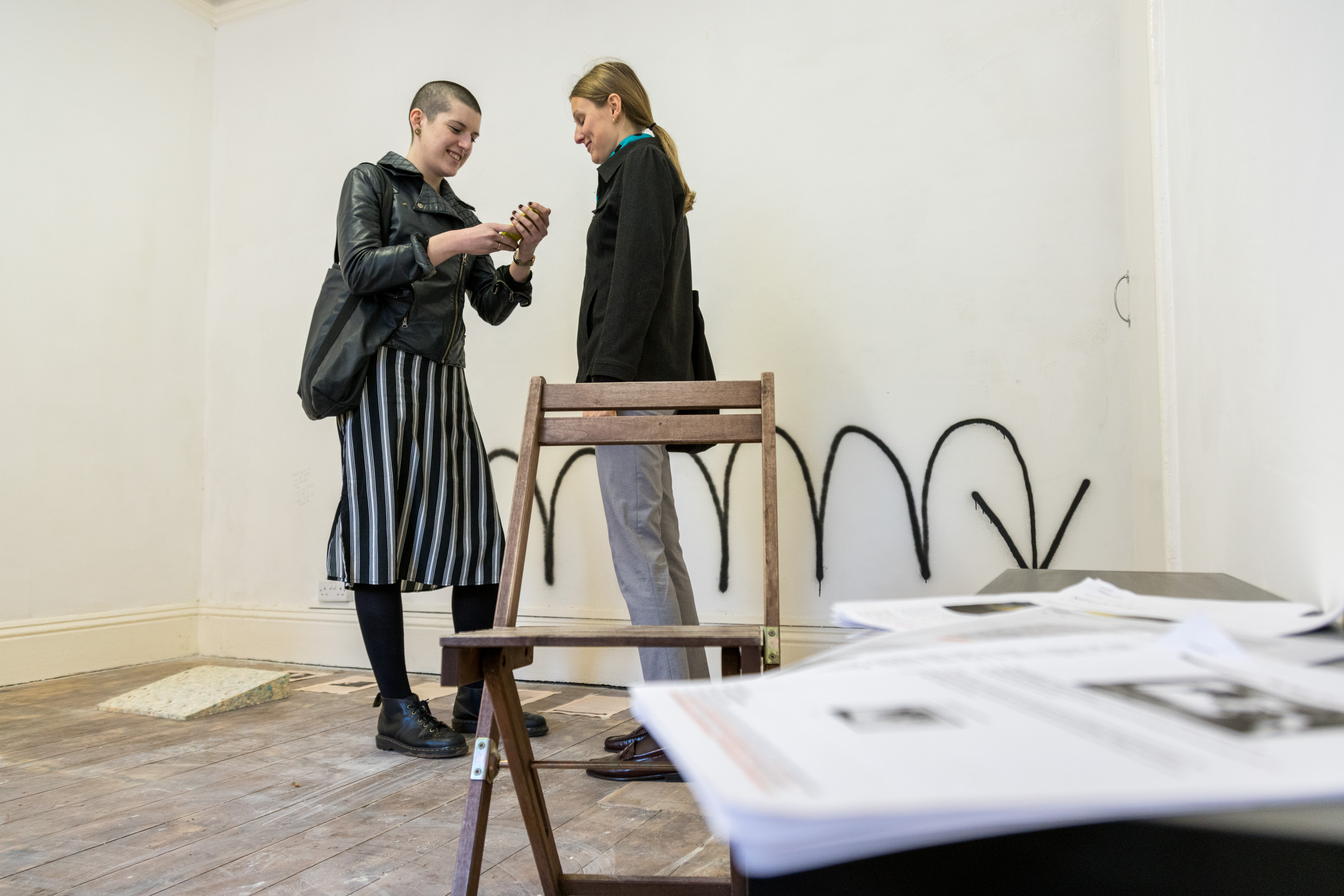

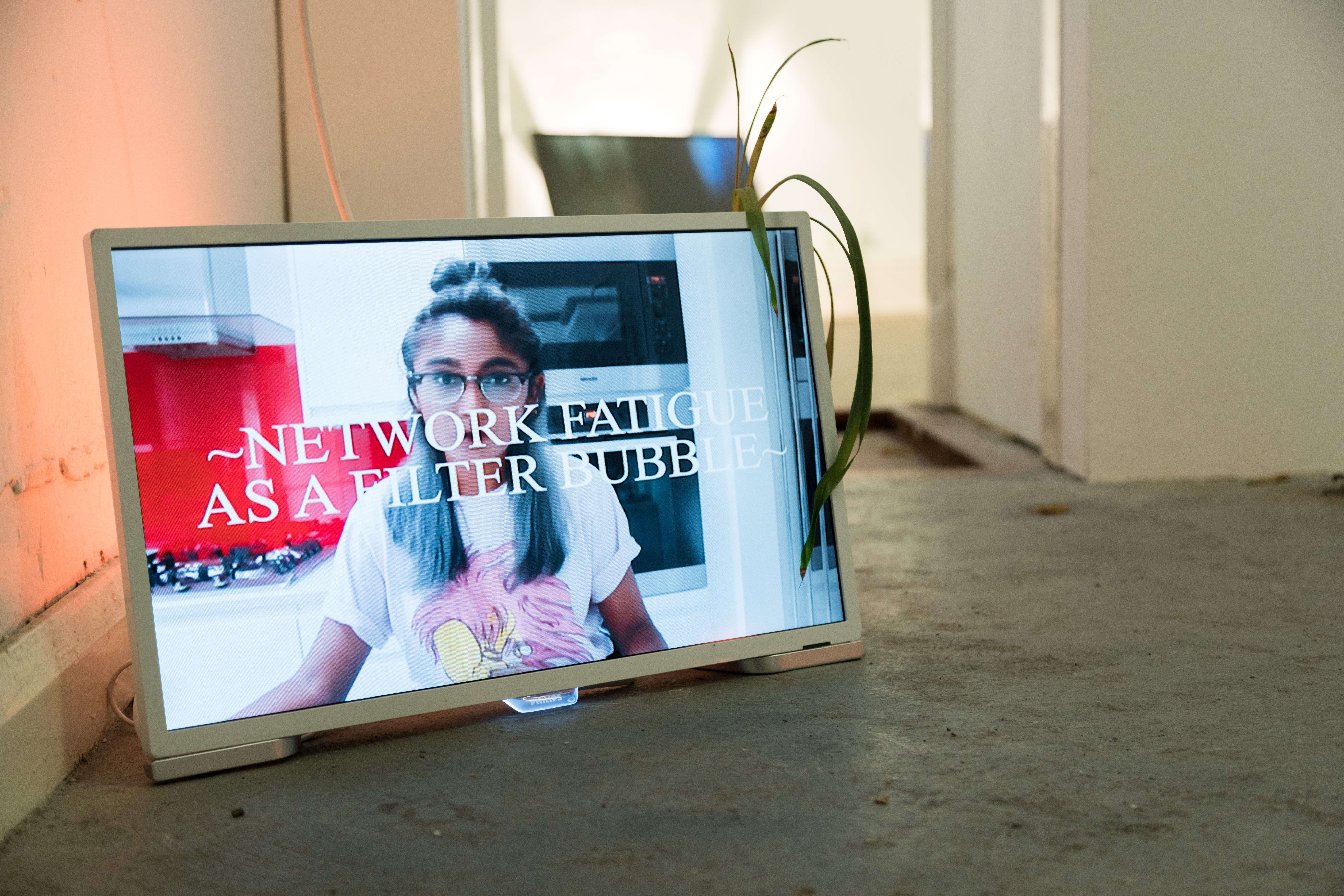
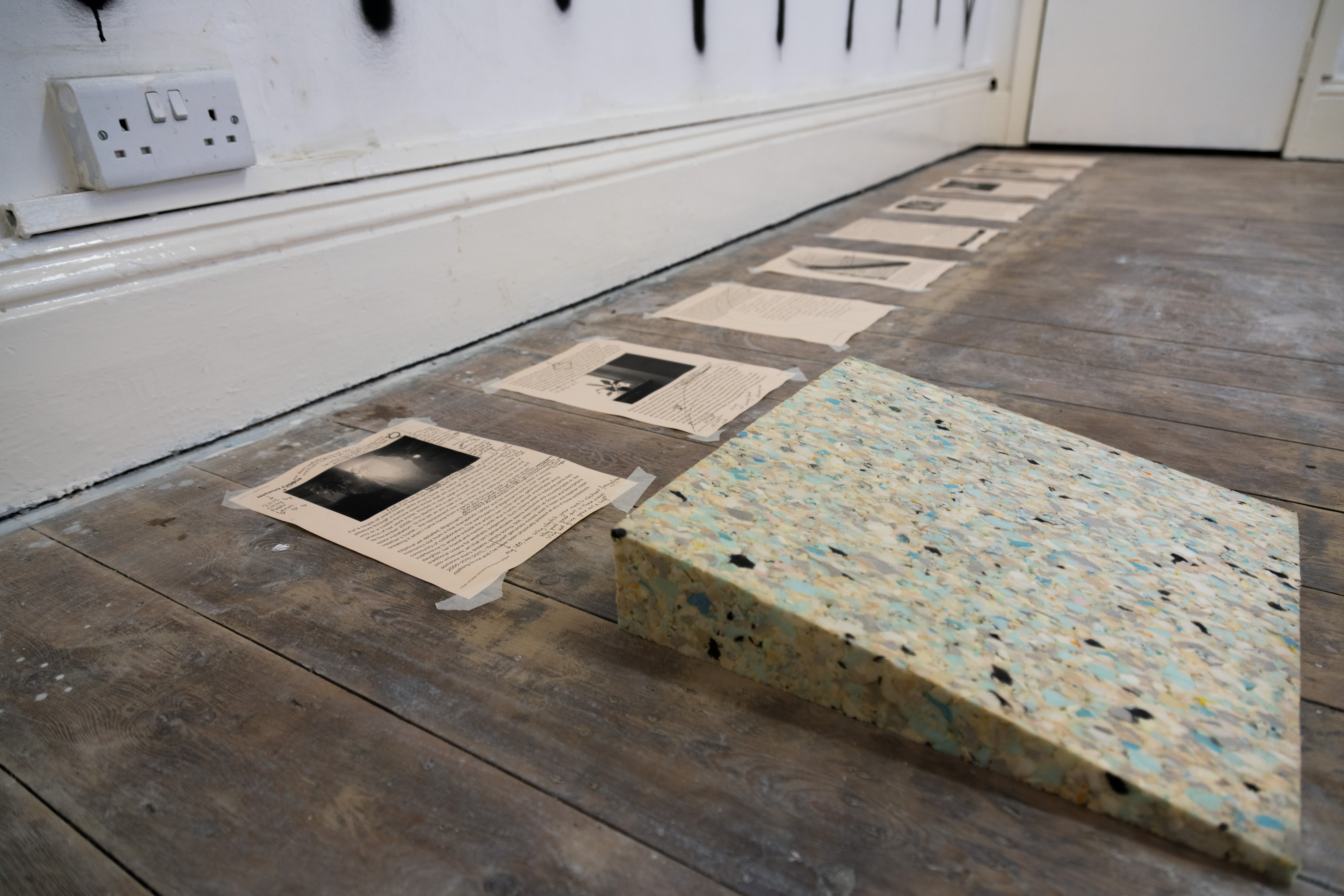
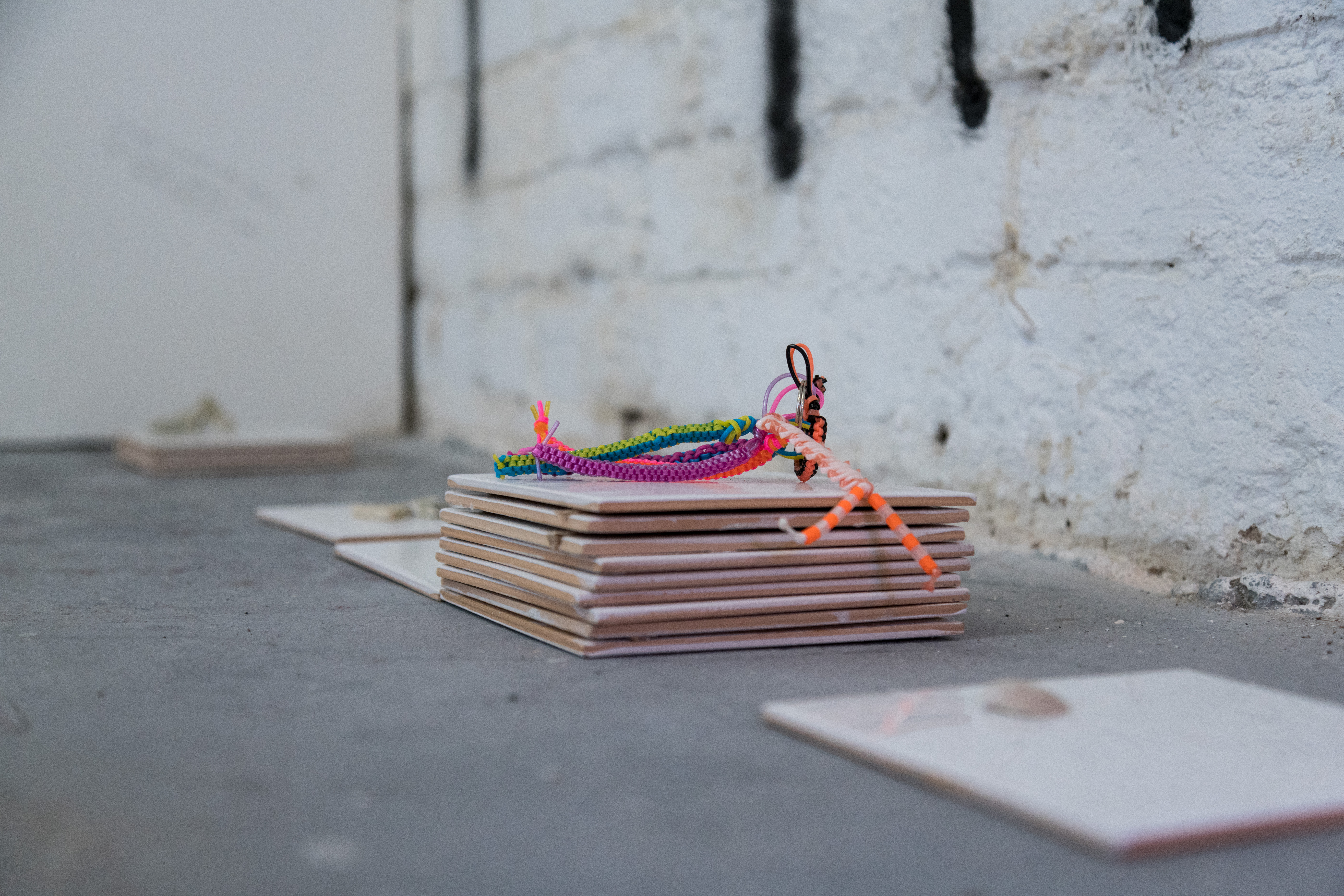

Image Credits: Reece Straw
Images from The White Pube's exhibtion The 🌱 of Pablo at HUTT, Nottingham, 2016
Ephemeral Care focuses on ethics, practice and strategies in artist-led and self-organised projects.